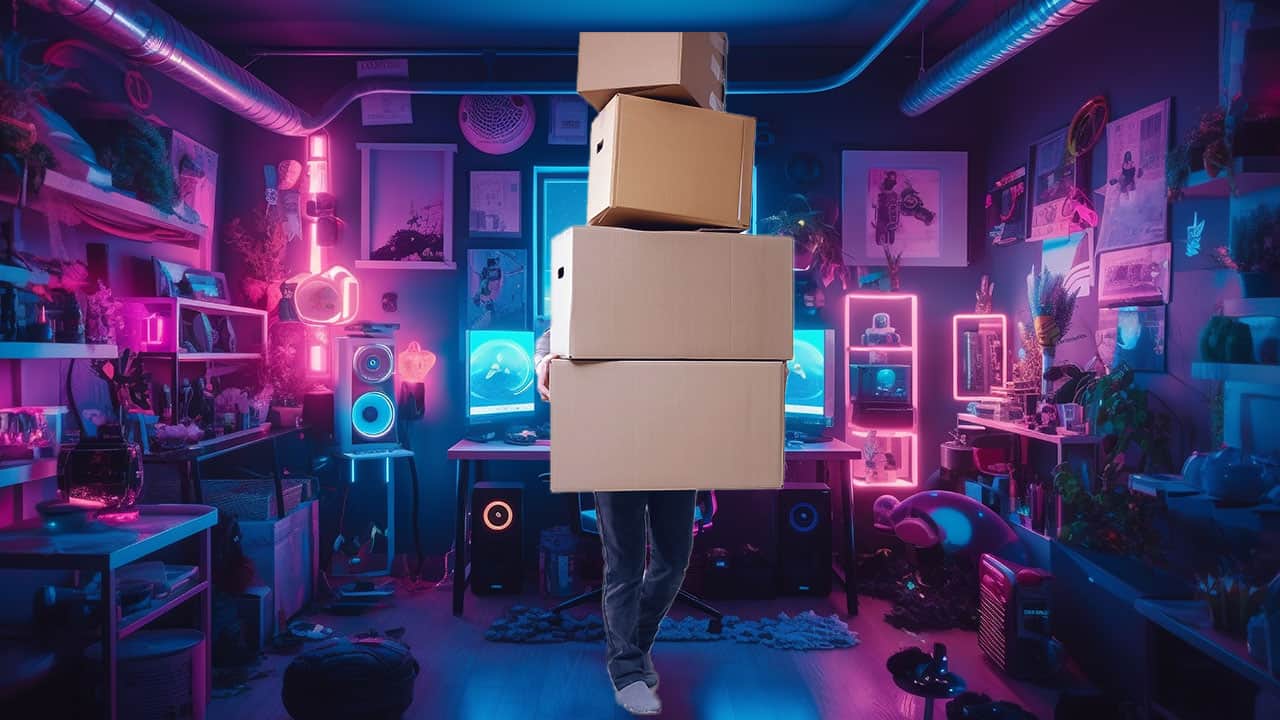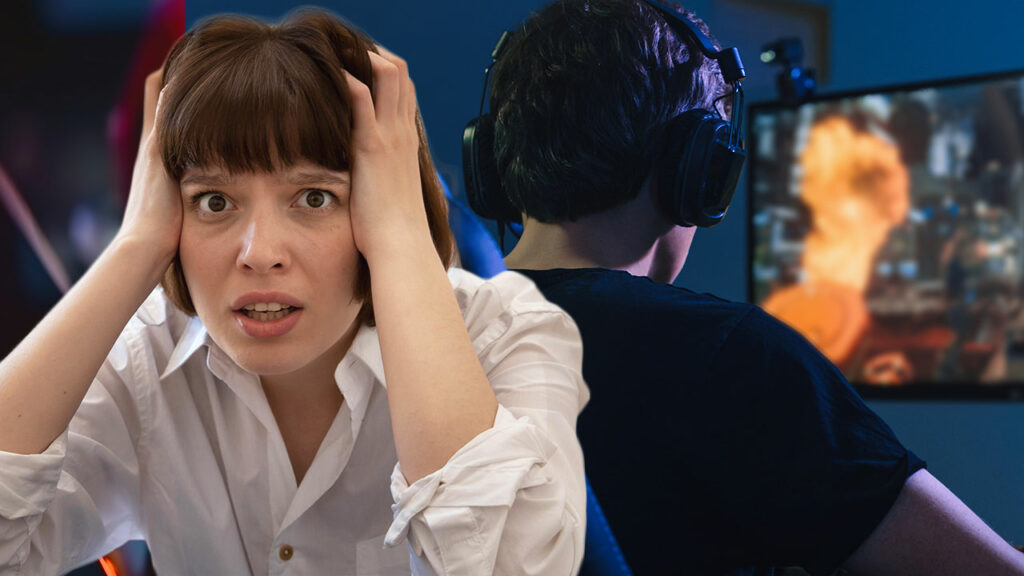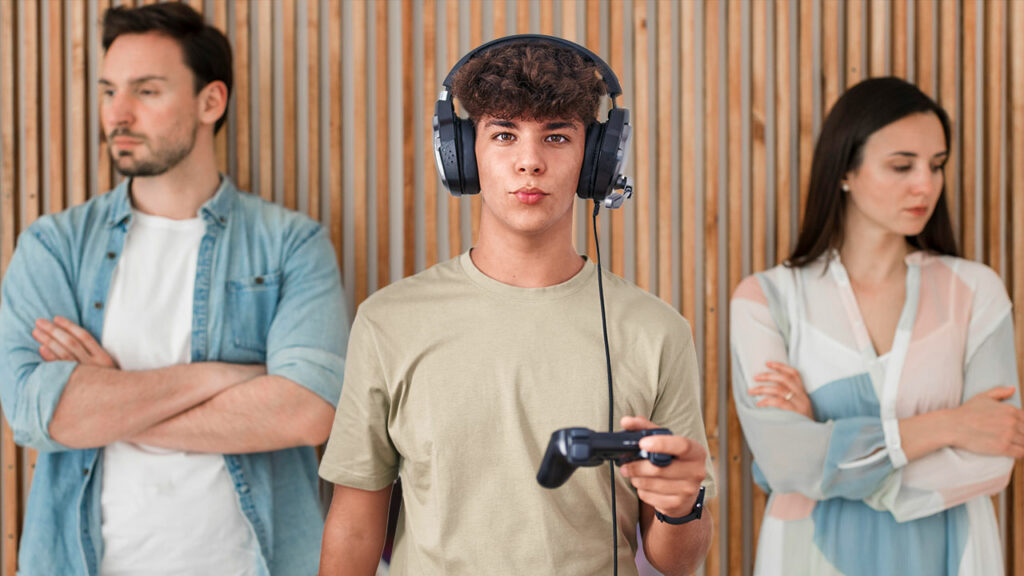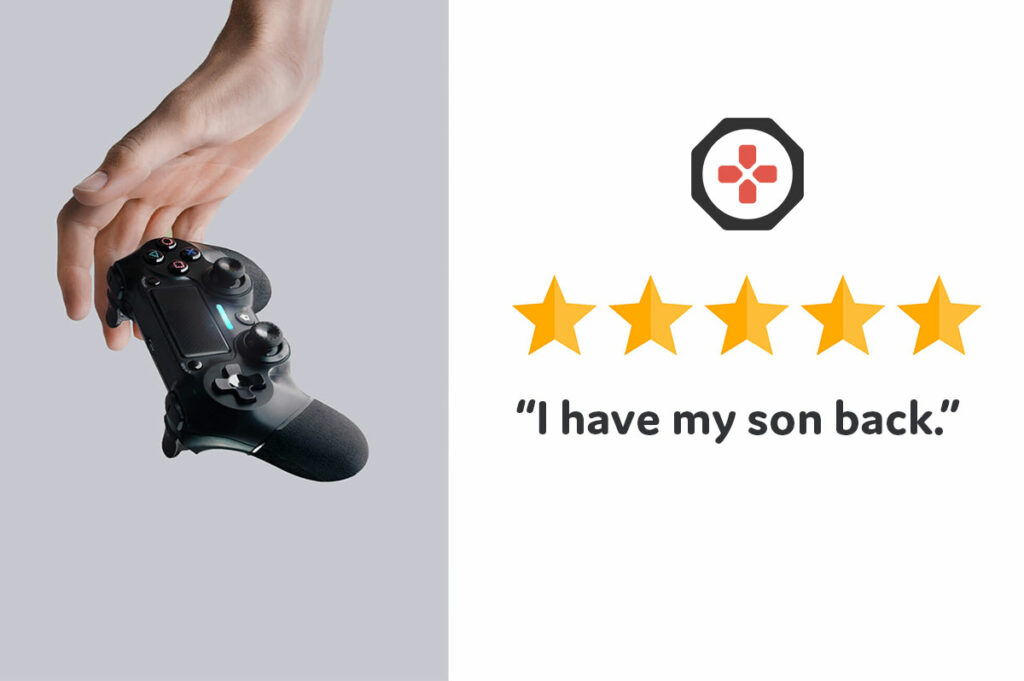
How to Get Your Adult Child to Move Out
Empty nest syndrome—the sense of loss many parents feel when their children move out—is increasingly happening later. The rising cost of living, student debt, and unaffordable rent are some of the reasons why more adults are staying at home for longer.
Usually, it’s a temporary and convenient solution, but in households where someone is gaming excessively, not working, and being rude and disrespectful, living under one roof can become intolerable.
At Game Quitters, we understand the strain that video game addiction can put on the whole family. In this article, we share tips on how to get your adult child to move out and begin an independent life.
What is a realistic age to move out?

For most people, moving away from home is a major step on the journey from childhood to adulthood. This new phase of life involves taking on more responsibility and financial commitments but offers far greater freedom. So, when should adult children move out?
There’s no set age for young people to leave home; everyone has different circumstances. It may happen when they finish college, go traveling, start work, move in with a partner, get married, or have children. However, one in three U.S. adults aged 18–34 still live with their parents, and this is even higher in the majority of European countries, where the average age for an adult child to move out is 26 years old.
How gaming addiction can lead to failure to launch syndrome
At Game Quitters, our parent support group on Facebook has many posts from concerned parents with adult children living at home and prioritizing gaming over everything else. We also regularly receive calls from family members of loved ones in their 20s or 30s suffering from the destructive effects of video game addiction. They’re desperate for practical advice on how to deal with what’s often referred to as failure to launch syndrome. Here are some of the typical questions we receive:
- How to get my 25 year old to move out of the family home?
- How do I ask my adult son to move out without ruining our relationship?
- How do I convince my adult child to move out and stop gaming incessantly?
- How do you deal with a disrespectful grown child who uses the house like a hotel?
- How do you get an adult to move out when they won’t get a job?
Gaming addiction is an officially recognized mental health disorder that can be as compulsive as drug or alcohol dependency.
The repercussions of video game addiction often have a wide-reaching impact on a young person’s life. They may struggle to hold down a job, develop social skills, learn to drive, eat a healthy diet, keep fit, maintain good personal hygiene, have a regular sleep schedule, do their share of household chores, and pursue other interests besides gaming.
They may also have co-existing mental health issues, like anxiety, stress, and depression. As a result of their addiction, they’re completely unprepared—and often unwilling—to navigate life outside the family home.
What to do when your adult child won’t leave home

Here are some practical tips for coping with grown children who are gaming excessively and showing no sign of leaving home. It’s aimed at parents but may be useful for anyone who’s concerned about a friend or family member with gaming addiction.
Establish there’s a problem
The first step on the road to an independent life is for the young person to accept they have a problem. Our video game addiction test is a quick way to identify whether their gaming habits meet the criteria for problematic gaming. They may be in denial, especially if they have a comfortable life where all their needs are met—food, shelter, clothing, online friendships, gaming equipment, etc, without having to earn a living. Remember, denial is a defense mechanism against making change. Addressing denial is the first step, and often parents need help to effectively approach their son about his gaming habits.
Make a plan of action
We often get asked, ‘What is the best way to tell an adult child that they need to move out of their parent’s house and get a job?’ We recommend you make a plan together that paves the way for them to leave home and become independent.
However, it’s important to understand that change won’t happen immediately. Over time, gaming affects the brain, so nothing feels fun or exciting apart from playing video games because it’s the only way they can get a dopamine rush. But if the plan can help your adult child reduce their dependence on gaming, their brain will start to heal.
Encourage other activities
The key is to balance gaming with other activities, so their brain receives dopamine in other ways and becomes less reliant on gaming. Your plan of action could include gradually decreasing screen time by 15 minutes each day—whatever they will agree to. Make sure they fill this free time with something else: shower, healthy meal, workout, walk, etc.
As more time is freed up, suggest they pursue another interest, ideally away from the temptation of their phone, laptop, or gaming console. Our hobby tool has ideas that may inspire them to do something other than gaming. Even though it will be difficult at times, try to provide empathetic and loving support. Eventually, they will be ready for a digital detox. This could be a day, a weekend, or longer away from all devices.
Set clear rules and boundaries
You’re likely to get pushback along the way, but they need to understand that it’s your house and your rules. For example, you can limit internet access or refuse to renew their gaming subscriptions because you pay for them. If they want to continue living at home, they need to buy into the plan of action.
If they don’t like the rules and boundaries, they’re free to leave as long as they’re not suffering from any underlying mental health issues. If they are, it’s important to help them find professional support.
Look after yourself
Throughout the process, make sure you look after your physical and mental health. Seek counseling if necessary or speak to a trusted friend or family member; you don’t have to do this alone.
Need help?

If you’ve tried the above tips but your adult child continues to play compulsively and shows no sign of leaving home, you may need specialist support.
At Game Quitters, we’re often contacted by parents who don’t know where else to turn. We’re experienced at dealing with gamers in denial.
Get in touch today to book a Gameplan call, where we’ll discuss your situation and how our coaching programs for gamers and families could help.
